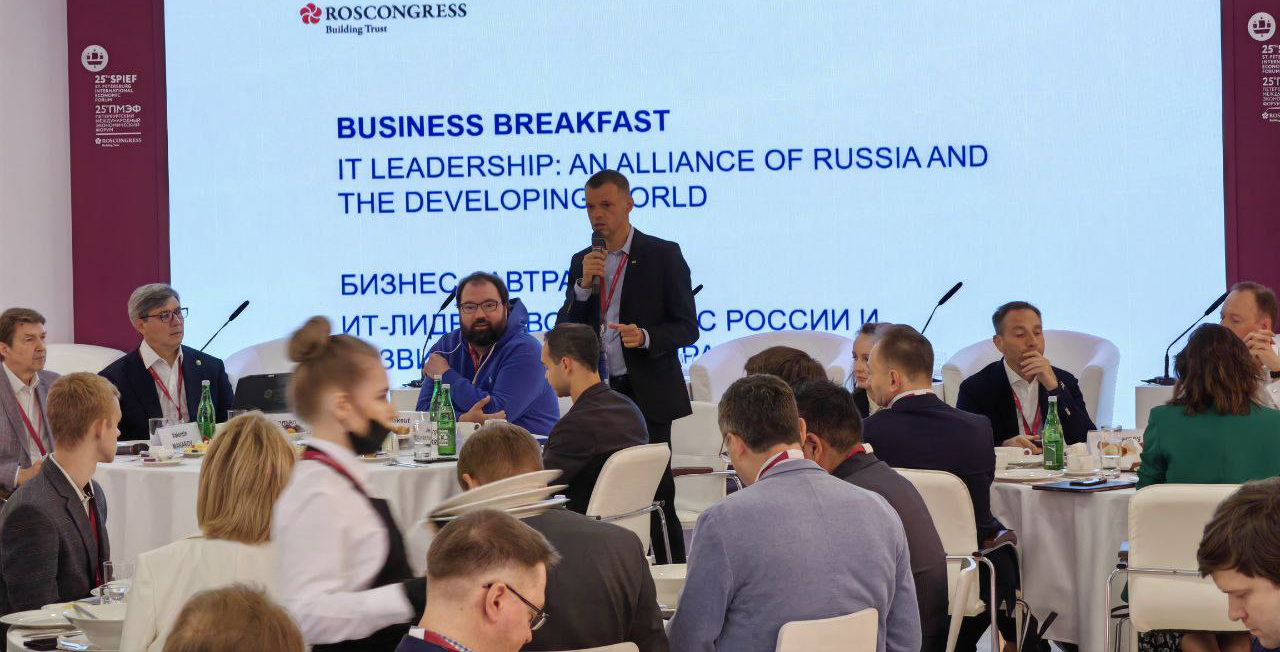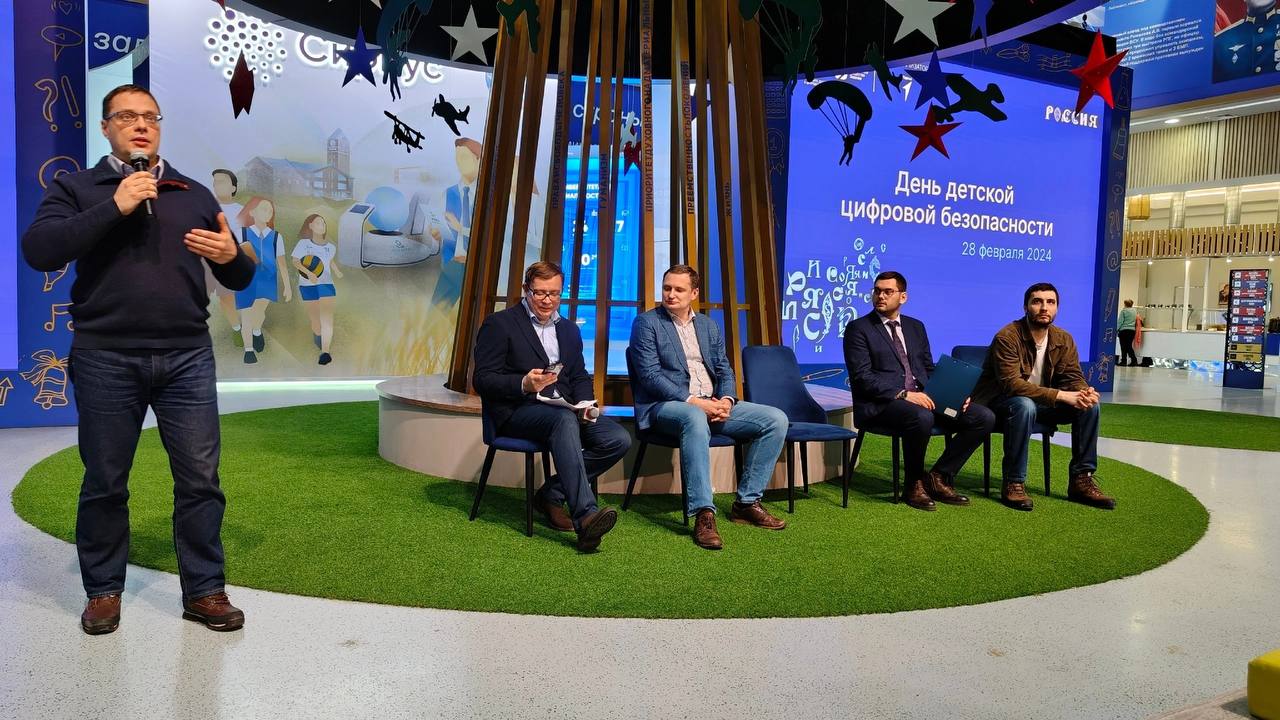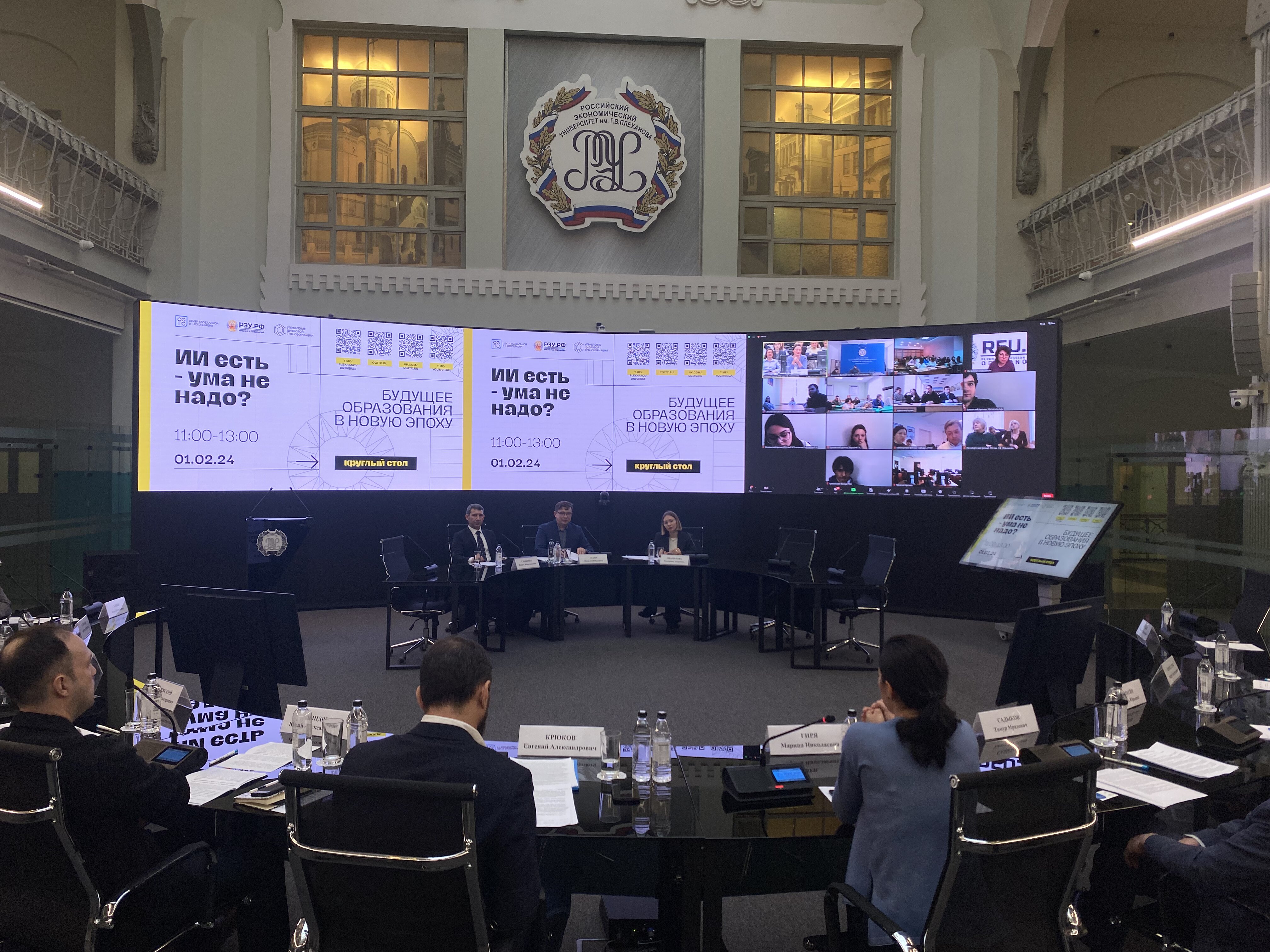The IT breakfast brought together the senior management of the Ministry of Digital Development, Communications and Mass Media, deputies of the Federal Assembly, leaders of the export-oriented software development industry, heads of leading Russian Internet companies, and IT business personalities from India and Latin American and Southeast Asian countries.
Due to the acute polarization of the global community caused by the sanctions imposed on Russia by the United States and EU countries, the global division of labor has experienced a radical change affecting various fields, including the field of information and communications technology (ICT). Russia’s steadfast position, that implies ensuring import independence in the field of ICT, has served as an example for all developing countries—an example of building an alternative technological platform of the New Technological Paradigm, in which these countries can be a priori placed in the same starting positions as the countries of the so-called “democratic world.”
Thus, Russia has gained a unique opportunity to lead, together with China, the technological movement of developing countries, including the countries of Middle East, Southeast Asia, Latin America, and Africa. ICT plays the main role in implementing the New Technological Paradigm strategy, ensuring the convergence between all industries. Therefore, the IT breakfast discussion of Russia’s opportunity to become one of the ICT leaders and the set of necessary state support measures for the IT industry that would ensure the country’s ability to successfully take a leading position in ICT is especially relevant.
The event was devoted to the topics of today’s opportunities and limitations in terms of ICT collaboration between Russia and developing countries, promising areas of cooperation, interaction formats, regulation methods, the risk of opposition to the ICT collaboration between Russia and developing countries and ways to minimize it, administrative hurdles hampering the international ICT collaboration between Russia and developing countries, ways to eliminate them, and state support measures.
The IT breakfast was moderated by Director of RAEC Sergey Plugotarenko and President of RUSSOFT Association Valentin Makarov.
“The digitalization theme runs through all the SPIEF, that’s celebrating its 25th birthday this year. The digital agenda is especially important in today’s Russia. Our IT breakfast has been an annual signature event of the SPIEF, and this year is no exception. This year, we would like to put special emphasis on the IT trends emerging in the circumstances that struck us as the new reality three months ago. It is also important to pay attention to the external agenda and the question whether Russia will be able to preside over new economic alliances,” Sergey Plugotarenko said.
Technical Director of VK Alexander Tobol remarked, “Our mission is to unite people, services and companies by creating simple and convenient communication tools. Thanks to the broad technological landscape, this year we managed to launch several separate applications, such as VK Clips, VK Calls and VK Messenger, in record time, and soon we will launch some other services as well. We have extensive experience in content delivery, machine learning, recommendation algorithms, and communication technology that we’re ready to share with the market. We now share solutions for videos, video streaming, and calls, that are already used by AliExpress, Uchi.ru, Tetrika and many others, at the SDK level. If you see that our solutions will help you reach a goal faster, we will be happy to help you.”
“Despite the current global situation, we understand that there is demand for documentaries, animation, and games, oddly enough. I’d like to point out that the situation on the gaming market is rather complicated as well. Over the last few months, we’ve done considerable work and found out that there are plenty of game development projects and all of them have the same need for help in selling products on the markets of Southeast Asia,” General Director of ANO Internet Development Institute Alexey Goreslavsky said.
Director of the Center for Global IT-Cooperation Vadim Glushchenko noted, “It is hard to talk about export barriers without talking about people who produce export-oriented software and hardware. We couldn’t help but explore the relocation issue. Every relocation case is unique. In February, people would often make decisions under the influence of intense emotions, therefore, many of those people are now coming back; according to surveys, 85 % of IT experts have come back. While carrying out the research, we talked to real people, and here is the typical profile of a ‘returnee.’ A person was working in Novosibirsk, had a stable job and a couple of freelance projects, but in March he decided to leave the country. He was considering relocating to Estonia, Georgia, Armenia, or Poland and weighing the pros and cons: the opportunity to communicate in Russian, a beneficial tax system, familiar cultural environment… Eventually, he chose Turkey. After living there for one and a half months, he understood that the situation wasn’t much better due to the language barrier, lower income, and a quality of life he wasn’t used to. When he found out about the support measures for the industry, he decided to come back. Now, there are unique opportunities for IT experts to reach self-actualization in Russia. Today we’ve heard about a lot of interesting ways to reach self-actualization, for example, in the international arena: there is a digital attaches training program, a ‘non-aligned tech movement.’ We can clearly see that the number of unfriendly countries is not that huge. And we have support from plenty Asian, African, and Latin American countries. Our colleagues from developing countries are ready to join us in promoting the ideas we share on field-specific international venues, such as the UN Internet Governance Forum. In my opinion, international IT collaboration is one of the most promising ways to achieve self-actualization.”
Minister of Digital Development, Communications and Mass Media of the Russian Federation Maksut Shadayev summed up the results of the IT breakfast, “I identified several important ideas and proposals made during today’s event. For example, we need to urgently increase exports to friendly countries in order to compensate for the loss of the foreign market. This cannot be done fast without direct state support. There are four priority areas of cooperation: Southeast Asia, Middle East, Latin America, and Africa. There are also four priority fields that I divided into four big blocks: financial support, sales, payments, and international cooperation.
As for the infrastructure of financial support, it’s important to allocate grants to mature IT companies and help them enter foreign markets. There should be ready-made offers from banks for companies entering new markets, such as concessional lending programs for foreign customers and accounts receivable insurance. It is proposed that the funds allocated to Rosinfocominvest should be used as the main source of funds.
As for the sales infrastructure, a system of trade offices should be used, and digital attaches should now be involved. Direct financial motivation is a great idea. The business should endorse the candidates. They should be qualified corporate salespeople that possess a good understanding of the products and are able to build a sales infrastructure. Organizing a roadshow of Russian solutions and providing potential customers with information on specific sectors and industries is a very good idea, too. State companies should include Russian solutions promotion tasks in their guidelines and track them as KPIs.
The payments infrastructure is the most confusing block. The ways of building the system of mutual settlements should be discussed.
As for the cooperation infrastructure, I identified three main fields of work. The first one is the open source—we should lead the cooperation movement. Cybersecurity. Russia is recognized as the leader of the field, and everybody will be eager to cooperate, at least in order to have another opinion on the matter. Developing industry standards is another important topic.
As for the work group, this can be done as well, but it’s important to strengthen the efforts in activities related to the Russian Export Center, which is now responsible not only for exports but also for imports. I think we should arrange a post of a REC’s deputy head responsible for the tasks related to our field. There were some questions about the state and IT. Innotech rightly pointed out that the state can help, but the initiative should come from the industry. Please, be more active. We’re ready to move in all these directions. Let’s turn this into a clear action plan. As for the tax benefits, the amendments are in the State Duma, and we’re waiting for them to be considered. We’re doing everything we can to accelerate the process. I’m leaving with a long checklist of things to be done.”





